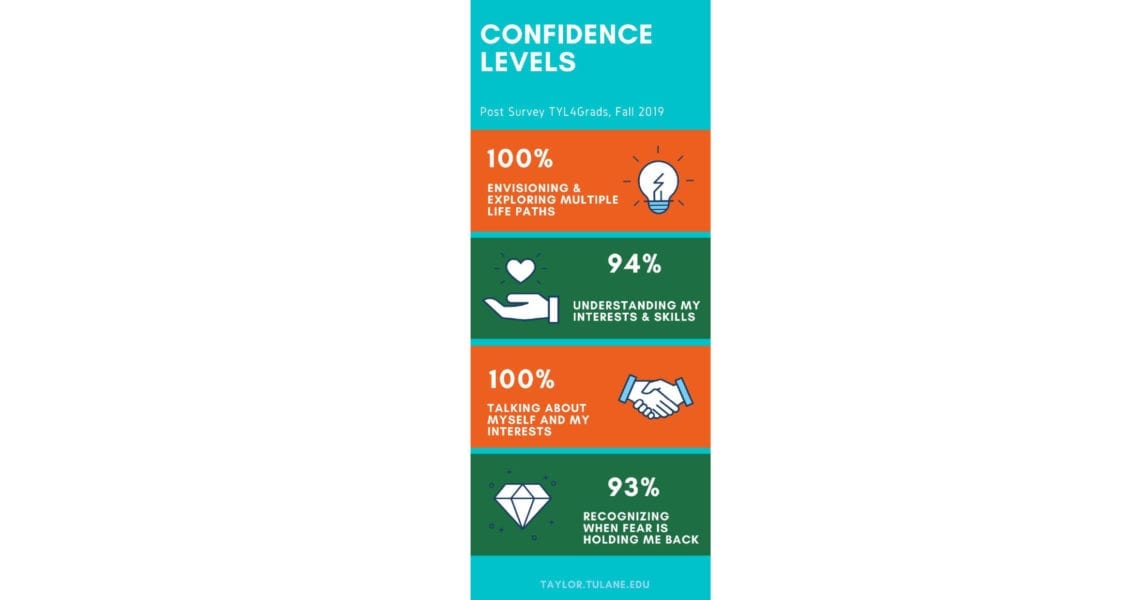
Reflecting on Taylor’s first Life Design Lab for Graduate Students
Reflecting on the TYL4Grads Launch in Fall 2019
Greatest areas of learning and growth from the first cohort of Graduate Students who participated in TYL4Grads (Taylor Your Life for Graduate Students), a 4-week life design lab
By Julia Lang and Mehr Manzoor
TYL4Grads Introduction
To help graduate students think creatively about their future and tackle hard questions about who they are, what they care about, and how they can design a life with impact after graduate school, we designed and launched “Taylor Your Life for Graduate Students” (TYL4Grads), a weekly 2-hour lab that met for a month, open to all graduate students at Tulane University.
TYL4Grads is based on the popular course Taylor Your Life, a 2-credit hour social impact career development lab that teaches undergraduate students to “Taylor” their life by applying methods and mindsets of design thinking (human-centered design) to career development.
The first cohort was comprised of 24 brave students representing 8 different schools within Tulane, including business, law, architecture, liberal arts, medicine, and public health. Students were enrolled in a master’s or a Ph.D. program and met on Fridays for two hours during the four-week workshop series.
We found that stress and anxiety due to uncertainty about next steps was natural and common among many graduate students who felt like they should have it “all figured out by now.” These brave students committed to stepping outside of their routine and comfort zone and being vulnerable amongst their peers in applying design mindsets to their own life discovery. You can also read the full Report of TYL4G student experiences.
Based on pre and post surveys of the program, the four biggest areas of growth for participants are summarized below.
Four Greatest Areas of Learning from the Program
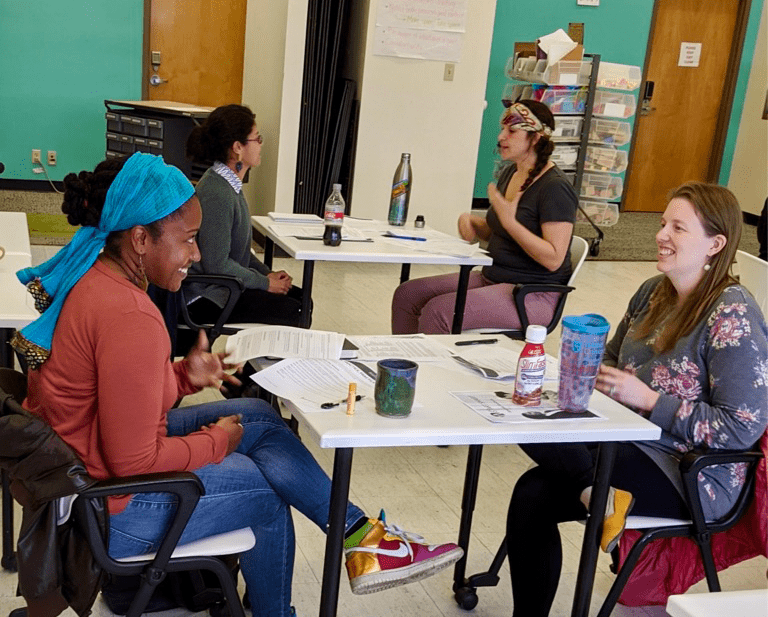
1. Increased autonomy in considering different pathways and deciding and choosing one’s own professional direction
[This course] – challenged ideas set by community and parents about what our careers “should” be.
[I learned] that I can be more intentional about how I choose my life, and that my choices are mine. I entered feeling like there was something expected of me and left confident that it is ok to move into whatever is what I would like to test now.
I had a breakthrough in every class…like breaking away from what my parents think…like you are a PhD and you have to do research….[I gained the] freedom to pursue my passion and not be afraid to do something.
We found that many graduate students came into the program with a linear and narrow vision for their future. Many felt destined for a life in academia or research, as defined by the viewpoint of their advisor or supervisor. Students reported that this program helped them break free of other’s expectations by creating space for them to explore and reflect on their interests and curiosities.
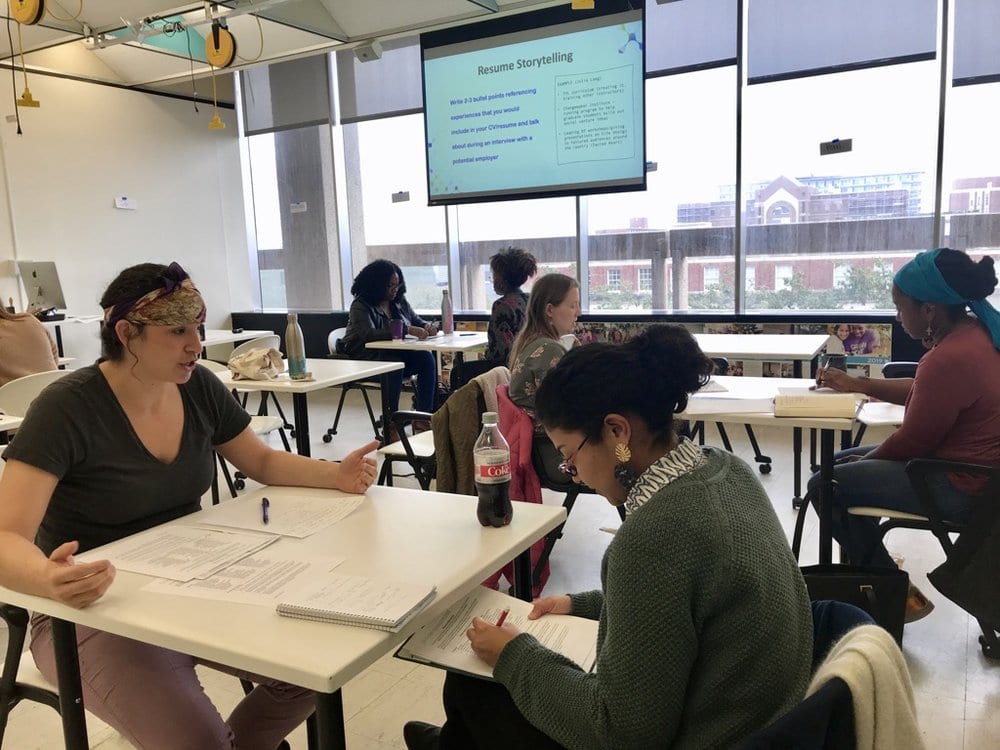
2. Deeper understanding of interests and increased clarity in one’s desired professional direction
I got a lot of great feedback about how to narrow down what I truly want for my career. All the class sessions really helped bring my interests from these huge, abstract ideas to a clear goal and pathway.
This came at a perfect time. As I am about to graduate and start a job search….[this program helped me] think more broadly thinking about kind of position I really want to take
We found that graduate students felt pulled in many directions, were busy and stressed, and that the sessions allowed them to carve out time to take a step back, focus on themselves, and develop clearer next steps. Students reported that deep self-reflection activities and the space to share their ideas with others helped them better understand what they wanted out of their careers.
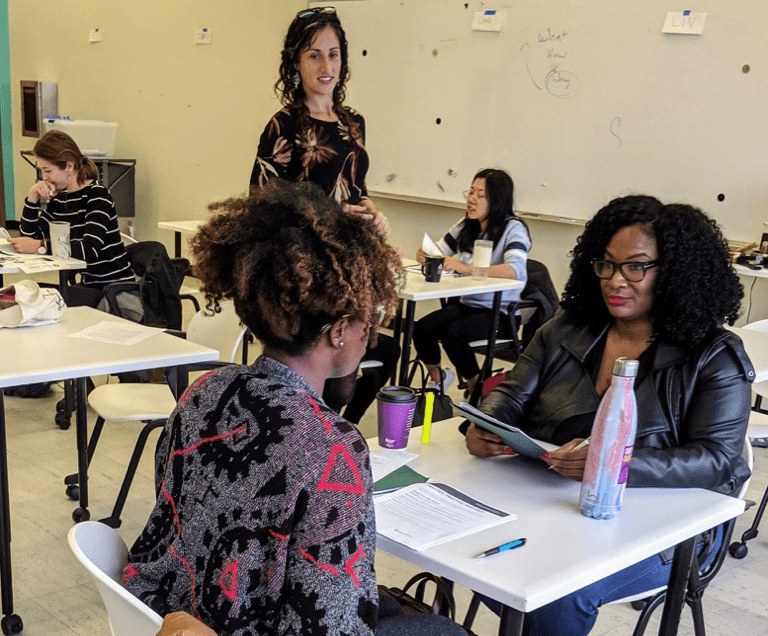
3. Greater confidence networking and talking about oneself
The most valuable activities for me were those related to learning how to talk about my skills/interests. It built my confidence to be forced to practice this with others and was so helpful to receive feedback from peers.
I gained an introduction to a ton of skills and knowledge for how to hone those skills to get more out of my existing connections and to facilitate new ones in ways that make job searching so much less intimidating.
Many graduate students struggled to talk about themselves and their interests in a clear and concise way, especially to people outside of their academic department. Students appreciated templates and peer feedback for developing and honing their personal professional introductions, as well as learning tools to network on the web and effectively utilize LinkedIn to reach out to alumni and professionals in their field, find common connections in companies or industries where they want to work, and showcase their strengths and achievements to potential employers.
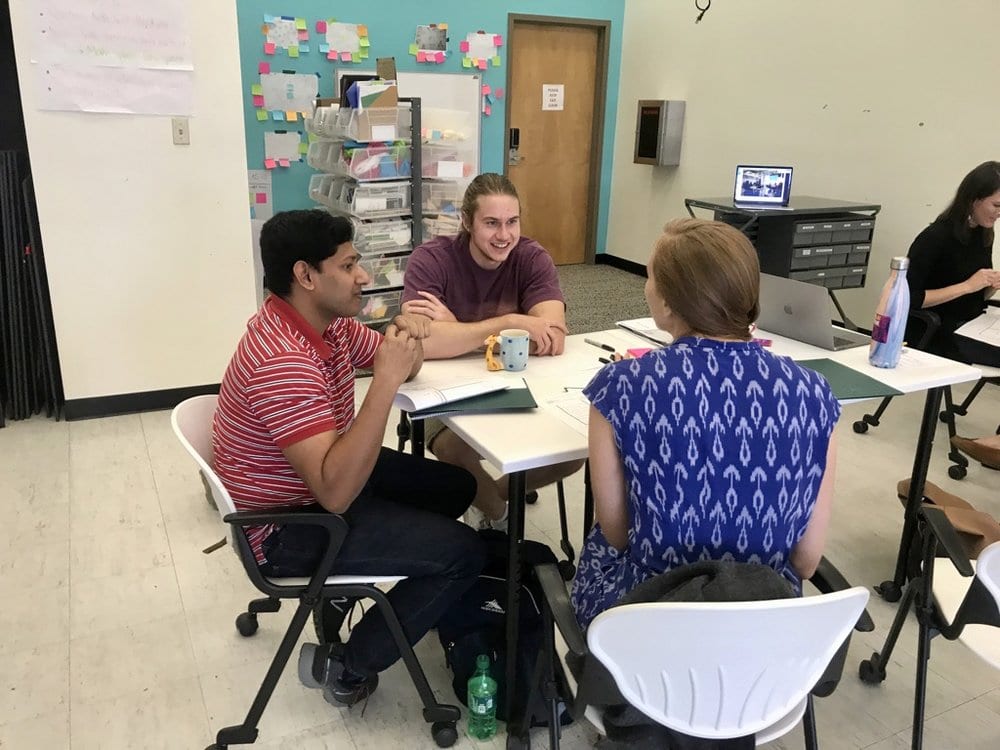
4. Increased ability to recognize and move through fear
Personally, I believe I received a life-changing experience during this course. The positive self-talk, self-esteem building, and fearless curriculum was beyond what I needed. I complete my MBA this spring and was at a crossroads with what I envisioned for the future. I am now fully aligned with embracing change and look forward to the next phase of my life. I have learned that it’s okay for me to be uncomfortable and pursue my passions. I can now walk fearlessly into my future!
I don’t like talking to people or emailing them…so prototyping has been so uncomfortable for me. But by making us send emails and following up with them, has been pushing me out of my comfort zone…I realized I can do this, and this is how you learn. I have always been so academically focused that I didn’t know anything else. But I am excited now.
Students reported that the program helped them recognize when fear was holding them back by being able to distinguish between good healthy fear that keeps them safe (like avoiding a dark alleyway at night), and unhealthy fears that rooted in their own insecurities, self-doubts and internal critiques (like fear of public speaking, fear of failure, or fear of writing). Students appreciated learning how fear was holding them back while providing the space to help them think about how their life would be different if they leaned into those fears instead of always turning away from what scares them.
Thank you to our inaugural cohort of graduate students!
For more information about life design, please read “What is Life Design?”, where we condense the complex and theoretical underpinnings of our Life Design courses into ten core frameworks and mindsets that anyone can use to re(design) their lives.
If you are a graduate student interested in signing up for a future workshop series, please join our newsletter to stay informed about future life design events.
Julia Lang is the Assistant Director of Career Education at the Phyllis M. Taylor Center for Social Innovation and Design Thinking, where she supports students in identifying their changemaker paths – where their academic interests and career aspirations intersect with a commitment to make a positive social impact throughout life. In 2015, she founded Taylor Your Life, a course that empowers students to find changemaking careers. Since then, she has reached over 600 students, trained 18 instructors in life design, served as a coach for Stanford University’s Life Design Studio, and has consulted with several other colleges, universities, and K-8 schools about the future of work and embedding life design into their curriculum.
Mehr Manzoor is a Fulbright Scholar from Pakistan and a Ph.D. candidate at Tulane University in the Department of Health Policy and Management. Mehr’s research focuses on gender equality and women’s leadership in global health. She is the Life Design Graduate Assistant at the Phyllis M. Taylor Center for Social Innovation and Design Thinking, supporting Taylor staff on the Taylor Your Life curriculum and the Changemaker RLC programming assessment. In 2019, she co-founded Taylor Your Life for Graduate Students with Julia Lang, a 5-week career-development lab that works with Masters level and Ph.D. level students at Tulane to “Taylor” their life journey by applying methods and mindsets of design thinking (human-centered design) to their careers and work life.